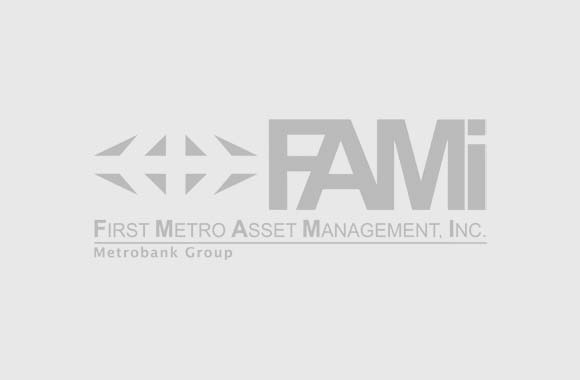Related Articles
Market Outlook. We expect the market to trade sideways as investors await the results of April inflation reading on Thursday, May 4. There could be profit taking after the recent rallies and ahead of the expected rising inflation print for last April. According to the Bangko Sentral ng Pilipinas (BSP), consumer price index likely hit 3.9% to 4.7% due to rising petroleum prices (oil prices moved above $74 a barrel, highest since 2014), higher rice prices and more expensive electricity rates. It will be market negative if inflation hits above consensus estimate of 4.50%. First quarter earnings will also provide direction. We saw Metrobank (MBT) and Meralco (MER) came in-line with consensus: MBT reached Php5.9bn, up +5.3% while MER posted Php4.92bn, 7% versus last year. URC, on the other hand, disappointed the market with a Php2.9bn core net income, down 25.3% versus 1Q17; the profit decline has not abated. Watch out for the earnings releases of MPI which we expect to be still better than last year due to some low base effect. Same with AEV, AP due to new power capacity. Eagle may beat estimates with its strong competitive positioning vs peers.
Market Review. The market was flat week-on-week (w-o-w), slightly down 0.07% amidst the lack of catalysts. The PSEi dropped to 7,557.91 on Wednesday as 10-year US Treasury yield touched 3%, highest since 2014. But the local market bounced back as the BSP slightly signalled a hike soon. According to the central bank, yields on term deposit facility have risen steadily since mid-February and longer-dated rates have increased. It also added that the overnight rate movement is “just a question of time.” Easing geopolitics in Asia with North and South Korea doing a likely peace agreement also supported market sentiment with the historic meeting last Friday of the North Korean leader Kim Jong Un and South Korean President Moon Jae-in, agreeing to work on complete denuclearization of the peninsula. Despite this, foreigners still lacked appetite for Philippine stocks. Foreigners sold Php2.1bn last week (now on its 13th week) bringing year-to-date (ytd) net foreign selling to Php42.6bn. The most sold stocks last week were JFC, ICT, SM, SECB and BDO for a total of Php1.3bn while the most bought names were RRHI, MBT, AC, MEG and URC amounting to Php705mn. Ytd, foreigners’ top buys were TEL, MER, JFC, PGOLD and FGEN (Php2.9bn) while ALI, SM, BDO, AC and SMPH were the most sold stocks (-Php25.1bn). Asian bourses were mixed w-o-w. Top gainers were India (+1.8%), Japan (+1.4%) and Korea (+0.6%) while worst performers were Thailand (-1.8%), Taiwan (-2.1%) and Indonesia (-6.5%). Ytd, PSEi is still the worst performer in the region, down 9.8% followed by Indonesia and China, both down by 6.8%.
Government infrastructure spending in March was up 32.4% to Php63.4bn from Php47.9bn last year and 25.5% higher than the Php50.5bn spent in February. This is equal to a fifth of the Php313.1bn public expenditures for the month. Accounting for the higher spending were: 1) implementation of road infrastructure projects 2) completed police stations 3) rehabilitation of schools including purchase of office supplies and furniture. For the first quarter, expenditures were up 33.7% to Php157.1bn versus Php117.5bn last year. This also exceeded the government’s Php143.4bn target for infra and other capital outlays in the first quarter. According to the Department of Budget and Management, national government spending on infrastructure alone will reach Php699.312bn for the whole 2018, equal to 4% of the gross domestic product. Meanwhile, Standard and Poor (S&P) Global Ratings upgraded its outlook on the Philippine economy from stable to positive on the back of the developments in the tax reform and improvements on fiscal policies. In addition to robust economic growth, the agency noted the following reasons behind the upgrade: 1) improvements on quality of expenditures 2) limited fiscal deficits 3) low levels of general government indebtedness. The positive outlook hints a possible upgrade from BBB in the next 24 months.
Metrobank reported a 5% increase in net income to Php5.8bn, broadly in line with consensus estimates. Loans grew by 14% while deposits by 9%. The weaker loan growth resulted in a modest 11% growth to Php16bn in net interest income. This was supported by higher net interest margin which expanded to 3.75% versus 3.68% in 1Q17. Other operating income grew 20% on the back of higher fee income (+9%) and miscellaneous income (+49%). Trading and fx income, however, was a drag, down 20%. Capital ratios deteriorated with Common Equity Tier 1 (CET1) at 11.96% and Capital Adquacy Ratio (CAR) at 14.53% versus 12.81% and 15.63% during the same period last year. The rights offer is yet to be absorbed. Asset quality remained benign, slightly higher at 1.08% versus 0.91% in March 2017 but still best among peers. Buy.
Read full article here.

Related Articles
We use third-party cookies in order to personalize your site experience
